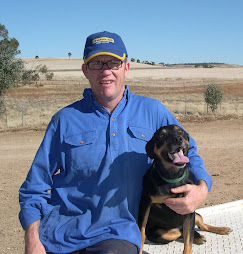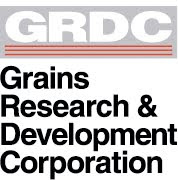JD Disc are the Most Common Machines on the Prairies
After meeting Doug & Tracey Palin at Keith Thompsons farm on the weekend we were off to Glen Elder to visit their farm. Doug took over the farm from his father and has built up a sizable operation with a large percentatge either rented (leased) or sharefarmed. All of their farm is now seeded with a zero till JD 1890 single disc seeder. The corn is seeded with a JD precision planter. Traditionally the farm grew only wheat and now Doug uses a number of crops susch as corn, milo, soyabeans, sunflower, and winter wheat, and is still looking for other crops so he can have a more diverse rotation. A diverse rotation is needed to keep weeds and pests guessing. Doug and I went down the shed with a couple of beers to discuss the mechanics of the disc seeding assembly, he feels that the different operations carried out by the assembly all need to be independent of each other. The disc needs to cut through the residue and create a slot for the seed, the depth wheel must work in tandem with the disc to accurately place the seed. A seed firmer is a good idea as it makes sure the seed is placed at the bottom of the slot. The press wheel should stand alone with the sold job of firming the soil around the seed. It shouldn’t be used as a depth control as this would add too much pressure above the seed and cause germination problems. It can also have the effect of making the disc come out of the ground and leave the seed stranded on top when used on undulating ground. The Thompson wheel is the final part of the assembly and this helps to crumble the wall of the slot to create an ideal seed bed. This star wheel should not have interaction with the soil and stubble greater than the width of the depth wheel as it will reduce the effectiveness of the closing function if it is hit by passing stalks & stubble.
Good Penetration and Seed Placement
An amazing chat we had was about the price of machinery in America compared to Australia. For a JD 9770 CTS header /combine the price was US $ 250000 and the comparable unit in Australia was $450000 for a second hand unit with 600 hours on it.
Both Doug and I found that there is a large gap in our knowledge regarding the processes that occour below the ground. Whether that is interaction between micro & macro organisms or soil colloids and elements. Another area in interest is the functioning of hair roots and the exudates they produce to attract hyphae and the role it plays in extracting nutrients for the plant.





































